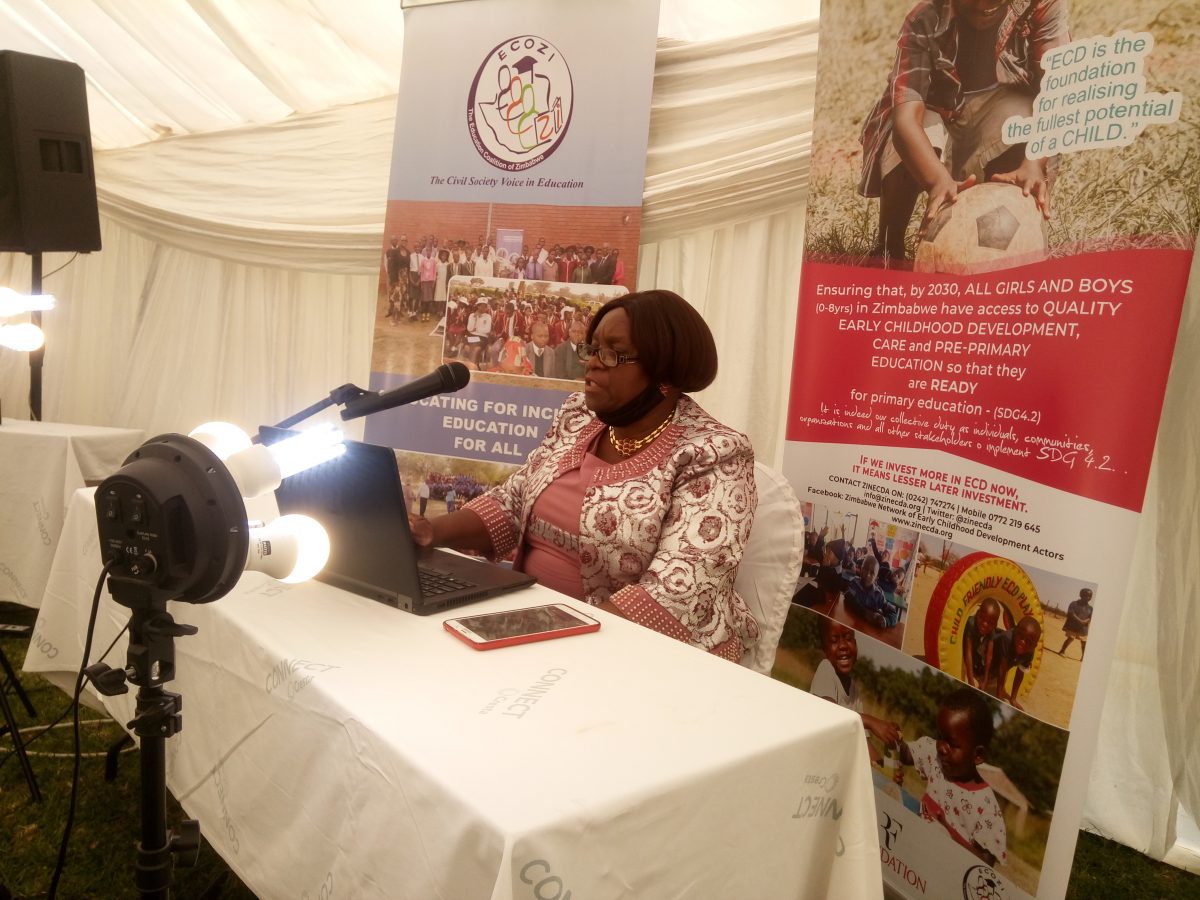It is known that qualified and knowledgeable teachers are a means towards quality provisions and practices in early childhood development (ECD) hence the importance of teacher training, a prominent educator has said.
Speaking on the last day of the Early Childhood Development Indaba workshop today at the Cresta Lodge Hotel in Harare held under the theme, “ECD achieving equity, inclusivity, and access to quality education in the 2021-2025 Education Sector Strategic Plan (ESSP), Dr. Rosemary Nyarugwe, the Principal of Nyadire Teachers College who was representing the ministry of higher and tertiary education said teacher education is essential to achieving at least four of the 10 targets of the Sustainable Develepment Golas under the education cluster with an emphasis on targt 4.2.
The workshop is courtesy of the Zimbabwe Network of Early Childhood Actors (ZINECDA) and the Education Coalition of Zimbabwe (ECOZI) who have partnered in an initiative to enhance access to quality early childhood education so that vulnerable children are ready for primary education.
The Roger Federer Foundation (RFF), a non-profit making foundation based in Switzerland, is partnering the two organisations to implement a two-year project titled School Readiness Initiative (SRI).
“Target 4.2 “By 2030, ensure that all girls and boys have access to quality early childhood development, care and pre-primary education so that they are ready for primary education.” It is known that qualified and knowledgeable teachers are a means towards quality provisions and practices in ECD.
“Thus the content in teacher training curriculum prepares the teacher to be able to operate in different contexts (all things being equal we should be finding ECD trained teachers in farming areas, prison schools and in the remotest areas of the country),” Dr. Nyarugwe said.
The prominent educator said that teacher education is central to quality ECD provisions. As such, all 11 primary teachers’ colleges are training an estimate of 300 ECD teachers per year per college.
Dr. Nyarugwe emphasized that the teacher training recruitment is inclusive and dispelled rumours of corruption at the training institutions.
In Zimbabwe, the minimum qualification for Teacher Training is 5 ‘O’-levels subjects including English, Maths, and Science
“Anyone, as long as he/she has these qualifications, is eligible (no tribal or disability issues are attached here). Teaching in ECD environments has an emphasis on the use of indigenous languages. In an effort to provide equal access in ECD environments, teacher education is equipping student teachers with knowledge of at least 3 indigenous languages so that they will be able to function in areas where any of these languages is common.
“It is through research that quality in ECD can be improved. Student teachers are engaged in research activities during the three years of training,” Dr. Nyarugwe added.
The senior educator emphasized the importance of partnerships in producing quality education.
She thanked UNICEF for funding the training of Para-professional ECD teachers to address teacher shortages that in turn improved on ECD quality provisions. She also alluded to VVOB (a Belgian organisation) that once supported programmes in Teacher Education under the banner “Teachers for Inclusive Early Education.”
The Campaign for Female Education (CAMFED) is also supporting female students through the payment of fees in the training colleges.
Dr Nyarugwe bemoaned the lack of resources (both human and material) resulting in very high student-equipment ratio. Some colleges do not have resource centres.
“There is also a mismatch of curriculum content in the two ministries of education. This is also coupled with staff shortages in colleges and mentor shortages in practicing schools for student teachers.
“Every teacher training college should have well-equipped with resource units for practical inclusive sessions. For equal access to quality pre-primary education, qualified ECD teachers should be employed observing acceptable teacher-learner ratio. There should be well-equipped ECD learning hubs. We also appeal to an unfragmented ECD programme under one ministry.”






